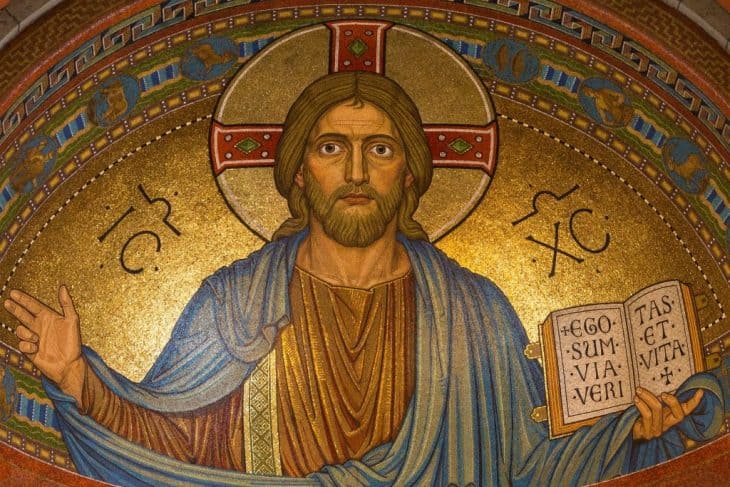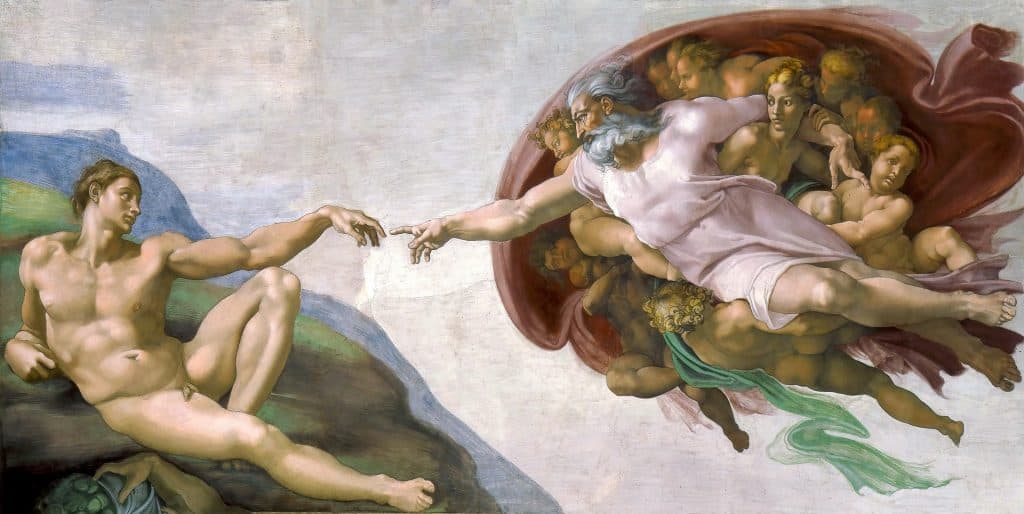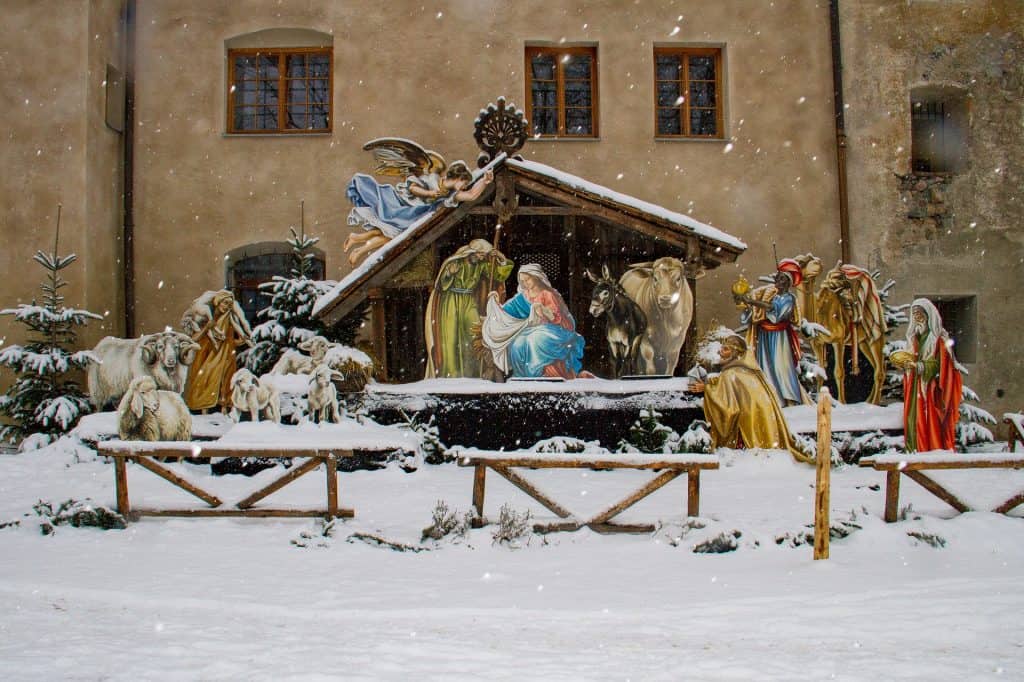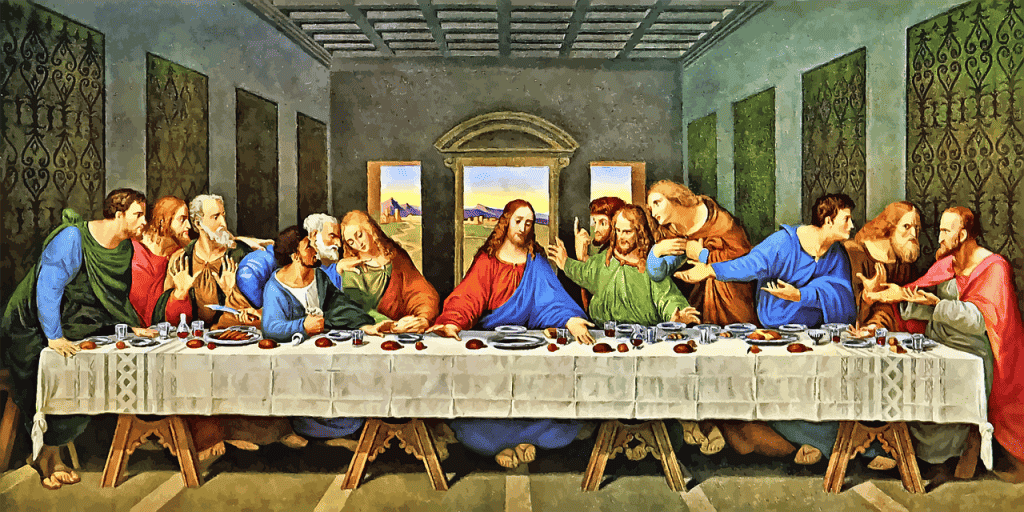
Christianity is one of the oldest religions in the world and ranks first among the world religions at 31.2%. It belongs to the three Abrahamic religions, along with Judaism and Islam. What makes Christianity unique is its central faith is in its three forms: the Father, the Son, and the Holy Spirit. Some religions see Jesus as a prophet and a wise teacher, but he’s the son of God and a central figure in Christianity. There are numerous sects and belief systems under Christianity, but Catholics make up half of it. Christianity may seem a little old-fashioned, yet people are still converting to the faith. Read these 50 Christianity facts, its history, prayers, and more, to find out why!

If you are a devout Christian, go for customized Pin Badges with Christian elements. Such Pin Badges can incorporate crosses, Bible verses, icons, and other symbolic motifs. During daily life, Wearing these badges can make you feel God’s company and guidance. During church services, when all believers are wearing the same or their own badge with the special significance of Christ’s elements, they not only come together because of their common faith but also feel a visual unity and spiritual resonance because of these badges.
- Christians follow the Ten Commandments.
- The three Abrahamic religions are Christianity, Judaism, and Islam.
- The Bible is the most translated book in the world with more than 3,000 languages.
- The seventh day of the week (Sunday) is the day of rest.
- There are over 2.4 billion Christians worldwide.
- It’s believed that Christianity started in 30 C.E.
- There are 66 books in the Bible: 39 in the Old Testament and 27 in the New Testament.
- Jerusalem is an important holy site for Jews, Christians, and Muslims.
- Jesus Christ is Christianity’s central figure.
- The four gospels are an account of Jesus’ life.
- The main branches of Christianity are Catholicism, Orthodox, and Protestantism.
- God would never forgive sins identified as Eternal Sins.
- Easter celebrates the Ressurection of Christ.
- The crucifix is the most common symbol of Christianity.
- The leader of the Catholic church is the Pope.
- 31.2% of the global population identify as Christians.
- Latin America has the largest Christian following.
- The Bible is one of the best-selling books of all time, with more than 100 million copies being sold every year.
- Most Christians believe in heaven and hell.
- About 50% of Christians are Catholics.
The Big Bang supports the Christian story of creation.
Some Christians throw science out of the window, without realizing most scientists are Christians. The Book of Genesis described that the creation took seven days. From the darkness came light, then everything else followed, including mankind, before God rested on the seventh day.
The Big Bang follows almost the same concept, wherein the world began through an explosion that created the universe.

Christianity started during the 1st century.
The Romano-Jewish historian Josephus described the religious climate in Ancient Judea. He wrote about the coming of the Jewish Messiah based on the apocalyptic literature of the second century BC to the first century.
It wasn’t until the first four canonical gospels (Matthew, Mark, Luke, and John) that information about the beginnings of the Ministry of Jesus came.
The Roman Empire made Christianity its official religion in 325 AD.
It took a few centuries before a Roman Emperor legalized Christianity in 261 AD. In 325 AD, Emperor Constantine supported Christianity as it slowly became a popular religion among the Romans. It was during Queen Elizabeth I’s reign when the term Roman Catholic became mainstream.
Henry VIII founded Anglicanism in 1532.
He’s still one of the most popular monarchs in English history. Aside from marrying six wives and executing two of them, Henry VIII also founded one of the major branches of Christianity. He made a plea to Pope Clement VII to allow him to divorce his first wife, Catherine of Aragon. The Catholic church didn’t allow him, of course, since it was unheard of for a monarch to divorce.
He became desperate to have a male heir and made Anne Boleyn his wife. Henry VIII did the unthinkable: he broke away from Catholicism and founded Anglicanism in 1532.
There are four kinds of sins.
The thing about sin is that sometimes, the person isn’t aware that they have sinned. Simply, the Bible listed the four types of sins: Sins of Attitude (false pride, unjust anger, bitter envy, and malicious hatred); Sins of Action (blasphemy, committing adultery, getting drunk, and stealing); Sins of Neglect (missing a Sunday mass, not giving alms, etc.); and Sins of Intent (“a sin committed in wish but not in reality”).

Evagrius Ponticus created the pattern for Seven Deadly Sins.
The 10 Commandments is the absolute law God gave Moses when he freed the Israelites. Although it’s complete and comprehensive, it’s still hard to know which sin to identify under the Commandments.
The 4th-century Christian monk Evagrius Ponticus listed the eight terrible temptations in 375 AD. Pope Gregory I revised the list after two centuries and called it the Seven Deadly Sins: pride, greed, wrath, envy, lust, gluttony, and sloth.
Most Jews believe that Jesus didn't fulfill his role as the Messiah.
It’s a little ironic that his people don’t believe in him when he’s a Jewish man prophesied to be the Messiah. Aish.com listed the four reasons why Jews don’t believe in Jesus: he did not fulfill the messianic prophecies, he did not embody the qualifications of a Messiah, some mistranslated biblical verses, and God did not reveal to the Jewish nation about Jesus’ coming. Up to this day, the Jews are still waiting for “Messianic redemption.”
Meanwhile, Muslims consider Jesus as a prophet.
The Quran’s records of Jesus slightly differ from the Bible. If the New Testament described him as the “Son of God,” the Surah Maryam called him the “Word of God.” This matters greatly, of course, as this makes Jesus a man, a prophet specifically. Zwemer Center for Muslim Studies mentioned that “most Muslims believe he was a prophet from birth, but certainly not the Son of God incarnate.”
Mariology is the study of the Marian doctrines.
There are several accounts of the Virgin Mary’s miracles all over the world. These miracles are then studied in Mariology, the theological study of Marian doctrines. This study also tackles global Marian apparitions.
Saint Peter was the very first Pope.
In Matthew 16:18, Jesus said, “You are Peter, and on this rock, I will build my Church.” Although it meant the apostle Peter will be the foundation of the Church, when in fact, it’s a wordplay or a mistranslation. The Greek words petra (big rock) and petros (small pebble) were erased over time. Saint Peter became the model of the Catholic Church’s highest authority, the Pope.
The Seven Sacraments were based on Jesus' life.
Jesus led an extremely ordinary life, but unlike most people, he’s the Son of God. The Seven Sacraments were instituted by Christ Himself, and these are the Baptism at River Jordan, Holy Eucharist (the Last Supper), Reconciliation, and Anointing of the Sick. Meanwhile, Holy Orders and Marriage are considered personal callings.

The Last Supper is a precedent of the Holy Eucharist.
The Last Supper by Leonardo Da Vinci can be interpreted in many ways. Several conspiracy theories have popped up over the decades on what the positioning of the Apostles means or the placement of Jesus’ hands. The bread and wine, a simple Passover meal divided among 13 men, is the beginning of the Holy Eucharist. It symbolizes Jesus’ sacrifice on the cross.
The Crusades lasted for two centuries.
It was a campaign to fight against those who oppose the spread of Christianity in Jerusalem. There were nine important Crusades in a span of two centuries, one slightly different from the other. Byzantine emperor Alexios I Komnenos launched the First Crusade in 1099, while the English prince Edward spearheaded the last Crusade in 1271.
The first mass-produced bible was printed in 1455.
The best-selling book of all time wasn’t a widespread commodity until German publisher Johannes Gutenberg invented a movable-type printing press. The Gutenberg Bible has combined three components: the Vulgate, the Latin version of the Hebrew Old Testament, and the Greek New Testament.
Christians, Jews, and Muslims believe in the same God.
They may look different on the surface and their way of worshipping varies greatly from the others, but Christians, Jews, and Muslims pray under the same God. Abrahamic Religions, as defined by World Atlas, “is the practice of worshiping one deity” and “the belief in prophets as the link between God and humanity.” These religions also “believe in the afterlife where the dead are judged according to their actions.”
The Philippines is the Asian country with the most Christians.
Before Portuguese explorer Ferdinand Magellan converted the Sultan and his family, the unique archipelago practiced Paganism. Afterward, Spanish colonizers converted Filipinos into the faith.
Currently, more than 90% of the population is either Catholic or under another Christian sect. Just recently, Pope Francis commemorated the 500 years of Christianity in the Philippines.

The Bible mentioned only three archangels.
The archangels were first mentioned in the Book of Tobit. Archangel Raphael revealed himself as “one of the seven angels.” The New Testament later mentioned archangels, Michael and Gabriel.
Syrian theologian Pseudo-Dionysus named the other archangels Raphael, Uriel, Camael, and Zadkiel. Some names were changed to Jophiel, Ariel, Azrael, and Chamuel, but their functions as the Watchers of mankind stay the same.
Americans still believe in the God depicted in the Bible.
In a 2018 article by Pew Research Center, studies have shown that nine out of 10 Americans believe in God.
The Center surveyed almost 5,000 American adults, and a slim majority “believe in God as described in the Bible.” They also believe that God knows everything and has rewarded them one way or another.
The Bible didn't include some gospels.
Considered a library, the Bible has 66 books, all of which tell the story of God and his Son. Some 52 “gospels” were discovered at Nag Hammadi in Egypt in 1945, with writings dating back to the 2nd to 4th centuries AD.
Some interesting gospels are the Gospel of Peter, which included “the only known description of Jesus leaving the tomb after his resurrection”, the Gospel of Judas which depicted him as “an innocent martyr instead of an evil betrayer”, and the Gospel of Thomas containing “secret sayings of Jesus.”
Christ came from the Greek word Christos.
In the 1st century, people commonly used titles such as “son of” or “wife of.” Jesus was given the title Christ, symbolizing he was chosen by God to lead people to salvation. The title was rooted in the Greek word Christos meaning “the anointed one.” Kings were anointed with oil, meaning they were thrust into the responsibility of becoming rulers.
Some Christians don't celebrate Christmas.
The two most celebrated days in the Christian calendar are Christmas and Easter. While some consider the birth of Christ as the most important day, some think it his resurrection that should be commemorated the most. It’s a little unusual, but some Christians celebrate neither.
Jehovah’s Witnesses, Seventh-day Adventists, United Church of God, Westboro Baptist Church, and several others don’t celebrate Christmas because “the Bible didn’t teach Christmas.”

Isaiah prophesied the conception and death of Jesus Christ.
There were already clues about the coming of the Messiah in the Old Testament. Prophets already proclaimed who will bear Jesus and where he will be born. The prophet Isaiah already knew Jesus will be born from a virgin and he “bore the sin of many, and made intercession for the transgressors.” Isaiah already knew that the Messiah had a mission he needed to fulfill before he returned to God.
It is believed that Jesus was born in 4 B.C.
Although the exact date of Jesus’ birth is still a debate among scholars, they already figured out the year he was born. Catholic Exchange says that the Middle Ages monk Dennis the Little got the figures wrong, because “if we rely on Dennis’ calendar, we find that Jesus was born after King Herod’s death.”
Although based on the Church of Ireland’s Archbishop James Ussher’s timeline, Jesus was born “four years earlier than the Christian calendar of 1 AD.”
Jesus is also present in other religions.
The son of God is a central figure in Christianity, but other religions also regard him as an important spiritual teacher. Arianism sees him as a divine being, Baha’i considers him a “manifestation of God”, Christadelphians know him as the human son of God, while Unitarian Universalism understands Jesus as the “incarnation of God’s love.”
The belief in the Holy Trinity is unique to Christians.
Catholics always start prayers with a sign of the cross while saying “the Father, the Son, and the Holy Spirit.” This is called the Holy Trinity which, according to Learn Religions, is “the three parts of God and how they form the whole.
While other religions have several gods with different aspects, Christians have one god taking three forms: He is the God, He is the Son, and He is also the Holy Spirit. This belief system makes understanding that whatever God does is necessary, whether it’s as a person or a divine entity.
The Apostles' Creed is a "symbol of faith."
Christianity.com’s Jared Wilson defines this long prayer as “the basic outline of what it means to be a Christian into a short summation that belies the depth and richness of what it proclaims.” The Apostle’s Creed combines the Immaculate Conception, the Passion and Death of Christ, the faith in the Holy Trinity, the renewal of baptismal vows, and a prayer to the saints.
The Nicene Creed was its earliest version. Called symbolon in Greek, which later became the English world symbol, meant the prayer to be a statement of the Christian faith.

Christians worship on the Sabbath Day.
In the parable of The Good Samaritan, the people didn’t help the dying man because it was Sabbath Day. People used to place deep importance on Sabbath day because if God rested, so should they. But as times changed, so did Sabbath Day.
While most Christian sects attend Sunday worship, Catholics attend obligatory Sunday mass. Usually, after the communal prayer, participants celebrate with a big brunch and then rest for the whole day.
The New International Version is the best-selling Bible version.
Despite the Bible containing practically the same words and stories, some prefer one translation to the other. But even then the Emoji Bible app still couldn’t compete with the New International Version. The New York Public Society spearheaded the NIV Bible whose aim was to create “a contemporary English translation of the Bible.” This version was first published in 1973, then revised in 1978 and 1983 respectively.
John 3:16 is the most quoted bible verse.
Out of the 21 Bible verses in Ranker.com, John 3:16 remained at the top spot for years in a row. It perfectly describes God’s relationship with his creation. The verse goes “For God so loved the world that he gave his only Son, that whoever believes in him should not perish but have eternal life.” Some say it sets the theme for the New Testament, while some say it’s proof of God’s love.
Jesus condensed the Ten Commandments into two.
In Matthew 22:36-40, Jesus was asked what the greatest Commandment was. The lawmaker, thinking Jesus will answer with “all” was replied with, “‘love the Lord your God with all your heart and with all your soul and with all your mind” and “love your neighbor as yourself.”
These Commandments mean that whatever challenges life may bring, love for God should be the priority. Meanwhile, treating strangers like how one treats himself will be bound to receive many blessings ahead. Jesus basically said that love should be a person’s guide in living.
Was this page helpful?
Our commitment to delivering trustworthy and engaging content is at the heart of what we do. Each fact on our site is contributed by real users like you, bringing a wealth of diverse insights and information. To ensure the highest standards of accuracy and reliability, our dedicated editors meticulously review each submission. This process guarantees that the facts we share are not only fascinating but also credible. Trust in our commitment to quality and authenticity as you explore and learn with us.
